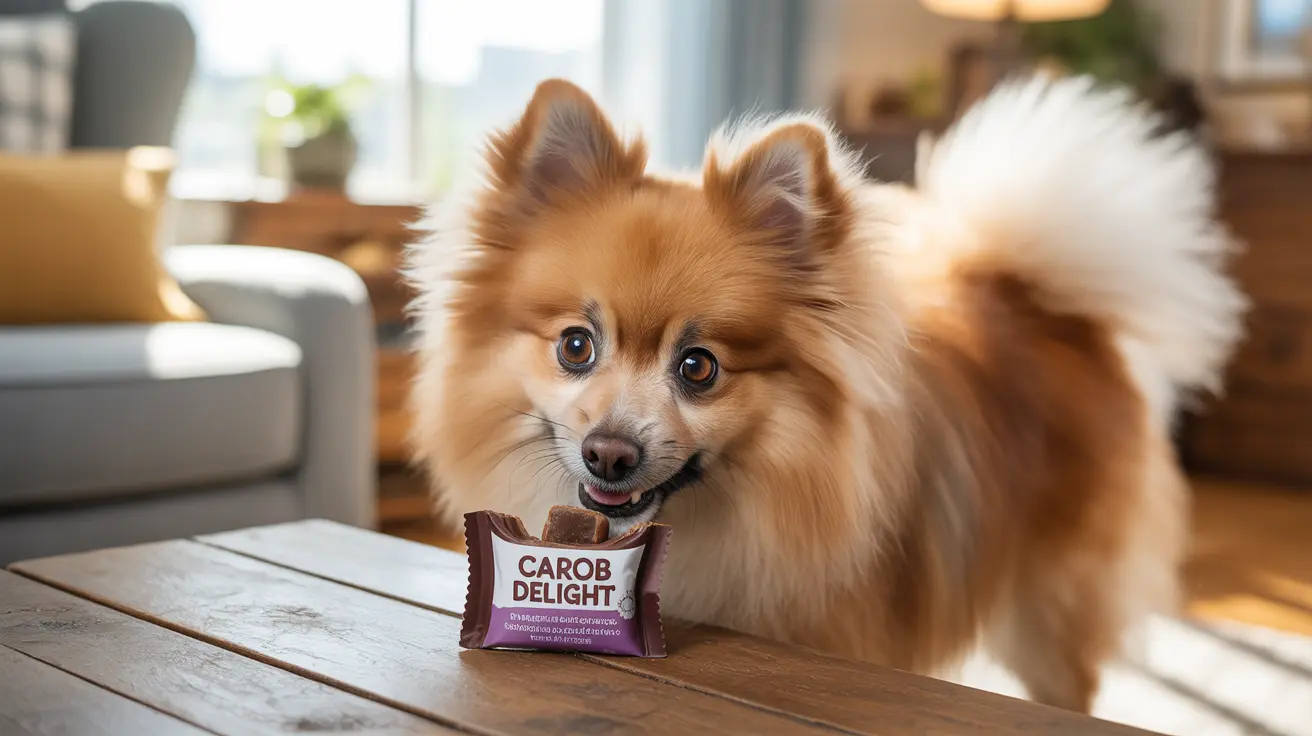What Is Carob and Why Is It Safe for Dogs?
Carob comes from the pods of the Mediterranean carob tree (Ceratonia siliqua) and is ground into a powder or formed into chips for use in treats. Unlike chocolate, carob contains no theobromine or caffeine - the compounds that make chocolate toxic to dogs. This makes it a completely safe alternative that allows your dog to enjoy chocolate-flavored treats without any health risks.
The Health Benefits of Carob for Dogs
Carob isn't just safe - it's packed with nutrients that can benefit your dog's health in multiple ways:
Digestive Health Support
Rich in dietary fiber, carob helps regulate digestion and can be particularly beneficial for dogs with sensitive stomachs. The natural fiber content supports healthy bowel movements and helps prevent constipation.
Vitamin and Mineral Content
Carob is loaded with essential nutrients including:
- Calcium for strong bones and teeth
- Potassium for muscle and heart health
- Magnesium for cellular energy
- Vitamins A, D, B1, B2, and B3
Antioxidant Properties
The high concentration of polyphenols in carob helps fight oxidative stress and reduce inflammation, supporting your dog's immune system and overall health.
Making Homemade Carob Dog Treats
Creating your own carob dog treats at home is both rewarding and cost-effective. Here's what you need to know:
Basic Ingredients
- Unsweetened carob powder or chips
- Whole wheat or oat flour
- Natural peanut butter (xylitol-free)
- Mashed banana or unsweetened applesauce
- Eggs for binding
Storage Tips
Store your homemade treats in an airtight container in the refrigerator to maintain freshness. Most treats will stay good for 1-2 weeks when properly stored.
Portion Control and Safety Guidelines
While carob is safe for dogs, moderation is key. Treats should make up no more than 10% of your dog's daily caloric intake. Always introduce new treats gradually and monitor your dog for any unusual reactions, though adverse effects from carob are rare.
Frequently Asked Questions
What makes carob dog treats a safe alternative to chocolate for my dog?
Carob dog treats are safe because they contain no theobromine or caffeine, the compounds in chocolate that are toxic to dogs. Carob provides a similar taste and appearance to chocolate while being completely dog-safe.
What are the health benefits of feeding my dog carob treats?
Carob treats provide fiber for digestive health, antioxidants for immune support, and essential vitamins and minerals including calcium, potassium, and magnesium. They're also naturally sweet and low in fat.
How can I make homemade carob dog treats safely and effectively?
Use unsweetened carob powder or chips combined with dog-safe ingredients like whole wheat flour, natural peanut butter, and eggs. Avoid any artificial sweeteners, especially xylitol, and follow proper storage guidelines.
Are carob dog treats suitable for dogs with allergies or sensitive stomachs?
Yes, carob is generally well-tolerated and considered hypoallergenic. It's gluten-free and dairy-free, making it suitable for dogs with various food sensitivities.
How much carob dog treats can I give my dog without causing health issues?
Follow the 10% rule - treats should not exceed 10% of your dog's daily caloric intake. Start with small portions and monitor your dog's response, adjusting serving sizes accordingly.
Conclusion
Carob dog treats offer a delicious and nutritious way to reward your furry friend without the risks associated with chocolate. Whether store-bought or homemade, these treats can be part of a healthy diet when given in moderation. By understanding their benefits and following proper serving guidelines, you can confidently incorporate carob treats into your dog's treat rotation.






